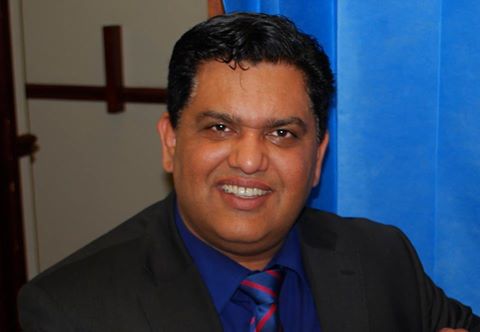Stay strong and become an antibiotics ambassador

I read with dismay the findings of a recent Medical Protection (MP) survey showing that patients become irate and even abusive towards GPs if we won’t prescribe the antibiotics they think they need.
A third of family doctors have apparently been confronted with ‘anger and frustration’, and I have heard tales of patients threatening to get GPs struck off, or having to be escorted from the practice premises.
This is symptomatic of a society that no longer respects the GP and is sadly typical of a generation of impatient patients desperate to get better quickly. It is also a case of Dr Internet at its worst again, where myths are pedalled that miracle medications are somehow being denied to the sick.
And the biggest touted cure-all is antibiotics.
GPs and our teams can be effective antibiotic resistance ambassadors
From Fleming’s discovery of penicillin nearly 90 years ago, they have been hailed as wonder-drugs that have played a part in the health revolution that has seen infections such as TB almost eradicated in Britain during our lifetimes.
It is interesting to note though, that in a 1945 interview with the New York Times, Fleming warned that misuse of the drug could result in danger, in the guise of resistant bacteria. And with reports of cases of bubonic plague in the West and the highest caseload of scarlet fever for 50 years, that day has dawned. We, as medics, need to wake up to that fact.
Dire warnings about antibiotic resistance have been issued by everyone from former Prime Minister David Cameron to the World Health Organisation. Dame Sally Davies, the Chief Medical Officer for England said: ‘We really are facing, if we don’t take action now, a dreadful post-antibiotic apocalypse. The world is taking notice, but we are not where we should be. Action has been too slow and we need to up the ante.’
In the face of that challenge, we as GPs seem to be buckling under. The MP survey states that 60% of us have occasionally prescribed antibiotics just to avoid confrontation while 4% did so frequently.
A recent story from the States illustrates the damage poor prescribing like this can do. An elderly woman persistently visited her doctor, convinced that her cough and cold symptoms required antibiotics – and her physician duly obliged. Her condition initially improved but within three weeks she was admitted to hospital with dehydration and kidney failure. She was subsequently diagnosed with Clostridium difficile infection.
Public Health England’s Keep Antibiotics Working at last put some of the onus for solving the problem at the public’s door. It was encouraging that it was so high-profile and on national TV screens. But the fact that over-prescribing is continuing means a stand-alone campaign hasn’t fully worked.
Better public education campaigns are required to hammer home the message that demanding antibiotics from your doctor is downright dangerous. We also need to overcome this culture of get fit, quick. Unscrupulous bosses and even schools are putting pressure on people to overcome sickness too sharply – leading to potentially deadly longer-term consequences.
Back at the surgery, it seems fear is allied with ignorance as another report, this time by Public Health England, claims that one in five patients is prescribed needless antibiotics.
This makes an argument for better guidelines and it is noticeable that inappropriate sore throat prescriptions were lower than those for sinusitis and inner ear infections.
Apart from it being our duty to reduce needless antibiotic usage, I would argue GPs and our teams can be effective antibiotic resistance ambassadors. I have championed the work of the world’s only charity specifically dedicated to beating antibiotic infections, Antibiotic Research UK (ANTRUK), not least because I work with homeless people, who are three times more likely to have an antibiotic resistant infection than the rest of society. Teams at my surgeries have run antibiotic awareness campaigns and events, sharing this important message for human health during the winter months when patients continue to wrongly believe that antibiotics will cure colds and flu.
If not us, then who? ANTRUK is right when it calls for Government, medical research charities and particularly the pharmaceutical companies, to act now by working together. But there is no harm at all in some pressure being exerted by practitioners and patients. After all it is the public who will suffer the effects of antibiotic resistance where a scratch could prove fatal. And we medics who will continue to hear unjustified complaints – when all we really want to do is care.
Dr Zahid Chauhan is a GP in Greater Manchester, founder of the Homeless Friendly programme and ambassador for Antibiotic Research UK
Pulse July survey
Take our July 2025 survey to potentially win £1.000 worth of tokens

Visit Pulse Reference for details on 140 symptoms, including easily searchable symptoms and categories, offering you a free platform to check symptoms and receive potential diagnoses during consultations.











